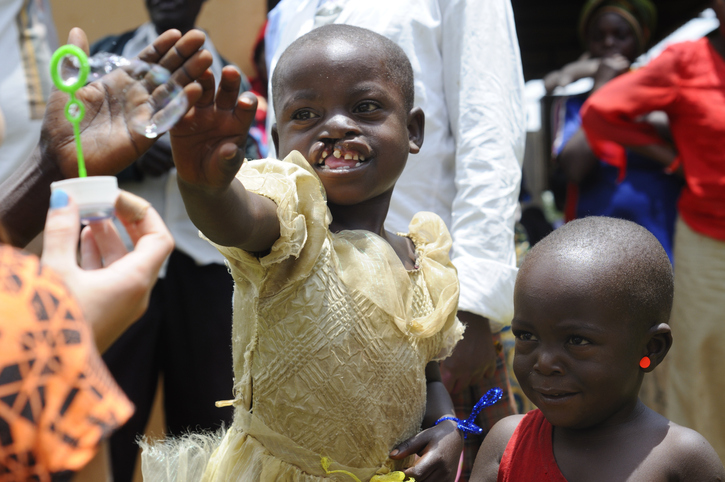For Sally Herman, RN, nursing was a calling. Having been born with a crossed-eye that required a number of surgeries at different hospitals in a few states, Herman had spent her childhood being bullied. She became a nurse, as she had hoped, and shortly after she graduated from school, she saw commercials for Operation Smile.
She knew she had to help, as she didn’t want other children to suffer like she did. She recently returned from her 50th medical mission with the organization, having spent 20 years as a volunteer. Today, she’s their clinical coordinator and is still moved by the group’s results.
“My first trip was to Nairobi, Kenya. I was working as a Recovery Nurse for the team. I was hooked as soon as the surgical team placed a child who had his cleft lip repaired, and I got to place the baby in her mother’s arms. The tears of that mother will stay with me forever,” recalls Herman. “I knew this is what I wanted more than my life itself. The redemption moment of child reuniting with her parents, repaired and opening up school opportunities, job opportunities and marriage—a world that child would have never seen, if Operation Smile would not have stepped in! I was hooked and never looked back. I still cry at that very moment, every time.”
Herman explains that “Operation Smile is a nonprofit organization that joins together with other countries in the treatment of cleft lips and cleft palates that occur in their countries. Many of the countries do not have access to safe surgery or the people who know how to do it. Our goal is to get rid of all clefts and teach a country how to meet their surgical needs for those children and adults suffering,” she says.
If you’re interested in becoming involved with Operation Smile, Herman says that you begin by submitting an application. To work as a volunteer nurse, you need to have PALS and CPR certification as well as pediatric experience. You will also need to have specific skills, depending on the area you want to volunteer in: they have pre and post op nurses, recovery room nurses, and OR nurses. If you want to volunteer, but don’t have the skill set, you can volunteer helping with medical records or with photography.
“For whatever area you get accepted in by your application, you will receive training on how the mission works and your roles and responsibilities,” says Herman.
As the Clinical Coordinator, Herman organizes the team on the ground, and she makes sure that all the nurses know their jobs and that every area is set up correctly to standard. She also screens all the patients on screening days, and works with the team leader surgeon, pediatrician, and anesthesia, they decide which patients that are able to operate on and which they can’t.
During their surgery week, she organizes patient flow to and from OR, RR, and post-op. She is also available for every emergency.
“I love this position so much as I get to be involved with the families and my team equally,” says Herman. “The one thing that constantly unites us as a team are those children. We are seriously giving them a future.”
Herman says that people may wonder why she does all this work for free and uses her vacation time to do so. “I have been to about every country in the world and even was inspired to start a feeding program in South Africa from my experiences,” she says, “It restores humanity to your life; it builds compassion and brings nursing to its real roots.”
If you’re thinking about becoming involved with Operation Smile, Herman says that you should do it. “It will be the most inspiring work you could ever do,” she says. “It is their smiles that keep me going back.
To learn more, visit www.OperationSmile.org.
- What an MSN Can Do for You - October 18, 2023
- The National League for Nursing: Connecting the Academic and Clinical Worlds for 130 Years - August 16, 2023
- Treating Burnout, Trauma, and Grief with Dance - July 14, 2023



